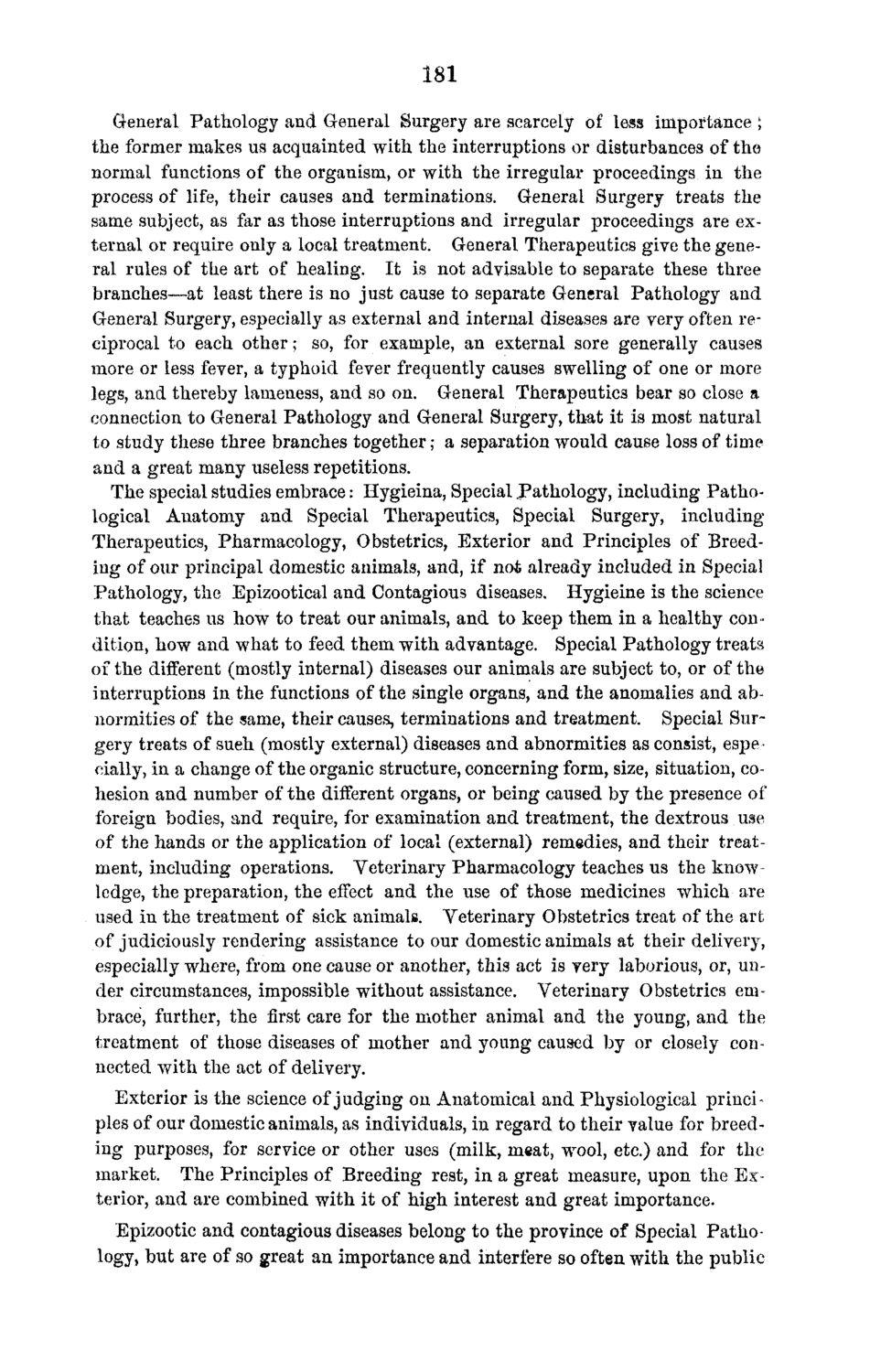| |
| |
Caption: Board of Trustees Minutes - 1870
This is a reduced-resolution page image for fast online browsing.

EXTRACTED TEXT FROM PAGE:
181 General Pathology and General Surgery are scarcely of less importance ; the former makes us acquainted with the interruptions or disturbances of the normal functions of the organism, or with the irregular proceedings in the process of life, their causes and terminations. General Surgery treats the same subject, as far as those interruptions and irregular proceedings are external or require only a local treatment. General Therapeutics give the general rules of the art of healing. It is not advisable to separate these three branches—at least there is no just cause to separate General Pathology and General Surgery, especially as external and internal diseases are very often reciprocal to each other; so, for example, an external sore generally causes more or less fever, a typhoid fever frequently causes swelling of one or more legs, and thereby lameness, and so on. General Therapeutics bear so close a connection to General Pathology and General Surgery, that it is most natural to study these three branches together; a separation would cause loss of time and a great many useless repetitions. The special studies embrace: Hygieina, Special Pathology, including Pathological Anatomy and Special Therapeutics, Special Surgery, including Therapeutics, Pharmacology, Obstetrics, Exterior and Principles of Breeding of our principal domestic animals, and, if not already included in Special Pathology, the Epizootical and Contagious diseases. Hygieine is the science that teaches us how to treat our animals, and to keep them in a healthy condition, how and what to feed them with advantage. Special Pathology treats of the different (mostly internal) diseases our animals are subject to, or of the interruptions in the functions of the single organs, and the anomalies and abnormities of the same, their causes, terminations and treatment. Special Surgery treats of sueh (mostly external) diseases and abnormities as consist, especially, in a change of the organic structure, concerning form, size, situation, cohesion and number of the different organs, or being caused by the presence of foreign bodies, and require, for examination and treatment, the dextrous use of the hands or the application of local (external) remedies, and their treatment, including operations. Veterinary Pharmacology teaches us the knowledge, the preparation, the effect and the use of those medicines which are used in the treatment of sick animals. Veterinary Obstetrics treat of the art of judiciously rendering assistance to our domestic animals at their delivery, especially where, from one cause or another, this act is very laborious, or, under circumstances, impossible without assistance. Veterinary Obstetrics embrace, further, the first care for the mother animal and the young, and the treatment of those diseases of mother and young caused by or closely connected with the act of delivery. Exterior is the science of judging on Anatomical and Physiological principles of our domestic animals, as individuals, in regard to their value for breeding purposes, for service or other uses (milk, meat, wool, etc.) and for the market. The Principles of Breeding rest, in a great measure, upon the Exterior, and are combined with it of high interest and great importance. Epizootic and contagious diseases belong to the province of Special Pathology, but are of so great an importance and interfere so often with the public
| |